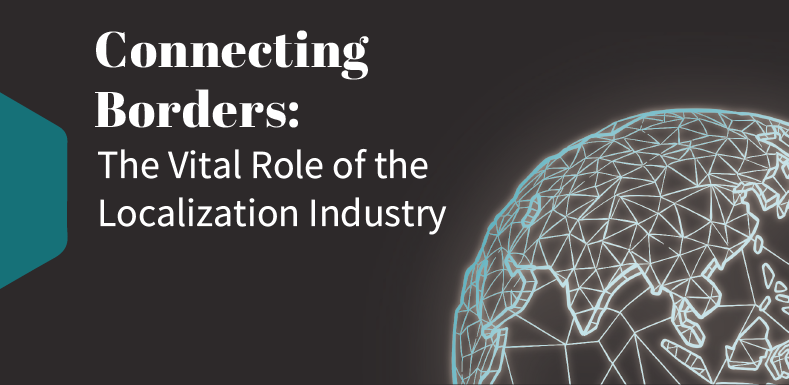
![]() In today’s interconnected world, where businesses are expanding globally and communication knows no boundaries, the role of the localization industry has become paramount. The seamless connection between cultures, languages, and markets is not just a luxury but a necessity. Let’s look into the profound significance of the localization industry and how it bridges the gap between diverse societies.
In today’s interconnected world, where businesses are expanding globally and communication knows no boundaries, the role of the localization industry has become paramount. The seamless connection between cultures, languages, and markets is not just a luxury but a necessity. Let’s look into the profound significance of the localization industry and how it bridges the gap between diverse societies.
Global communication
In a world brimming with diverse languages and cultural nuances, effective communication is the cornerstone of successful interactions. Localization, often referred to as the art of adaptation, goes beyond mere translation. It involves tailoring content to suit the preferences and idiosyncrasies of a particular region or target audience. It ensures that the message remains clear, resonates deeply, and fosters a genuine connection.
Cultural relevance for market penetration
The cultural fabric of each society is woven uniquely, and understanding its intricacies is essential for businesses seeking to establish their presence in foreign markets. Localization is not just about language: it also encompasses cultural norms, traditions, and even color symbolism. Adapting marketing campaigns, product packaging, and user interfaces to align with local sensibilities can make or break a brand’s success in a new market. Therefore, the localization industry serves as a cultural bridge, minimizing misunderstandings and fostering positive consumer experiences.
Elevated user experience
Imagine navigating a website or using an app that feels foreign, with content that seems detached from your reality. This is the kind of user experience that localization aims to avoid. By tailoring content to the local language and cultural context, localization increases user engagement and satisfaction. Users tend to feel seen and valued when they can interact with a product or service in their native language and cultural context. This not only boosts user trust but also leads to higher retention rates.
Beyond words: Visual and audio localization
Localization goes beyond text in order to address visual and audio elements, which play a significant role in content consumption. This field extends its expertise to adapting images, videos, and audio content. From subtitles and dubbing to reimagining visuals to resonate with local aesthetics, all of this contributes to a holistic and immersive user experience. This multifaceted approach ensures that the essence of the content remains intact while catering to the preferences of a specific audience.
Navigating regulatory and legal complexities
Expanding operations to international markets brings forth a myriad of legal and regulatory challenges. The localization industry doesn’t focus on language adaptation alone, it also ensures that content complies with local laws and regulations. From disclaimers to privacy policies, this attention to detail safeguards businesses from facing legal issues and reinforces their credibility.
Seamless integration for global success
We are living in an era where e-commerce, digital platforms, and online services rule the business world, and where localization isn’t just an extra feature, but a strategic imperative. Businesses that recognize the importance of the localization industry position themselves as global players who prioritize inclusivity and customer-centricity. By embracing localization, companies can seamlessly integrate into new markets while building loyalty and nurturing brand advocates across borders.
The localization industry is the backbone that connects borders, cultures, and languages. Its role in facilitating effective communication, adapting to diverse cultural norms, enhancing user experiences, and navigating complex legal landscapes can’t be understated. As businesses continue to expand their horizons, the localization industry stands as a bridge fostering connections that transcend geographical boundaries. Embracing localization isn’t just a choice, it’s an investment in meaningful and enduring global relationships.
So, whether you’re a multinational corporation or a blossoming startup, the localization industry offers the expertise you need to bridge gaps and foster genuine connections in our beautifully diverse world.




